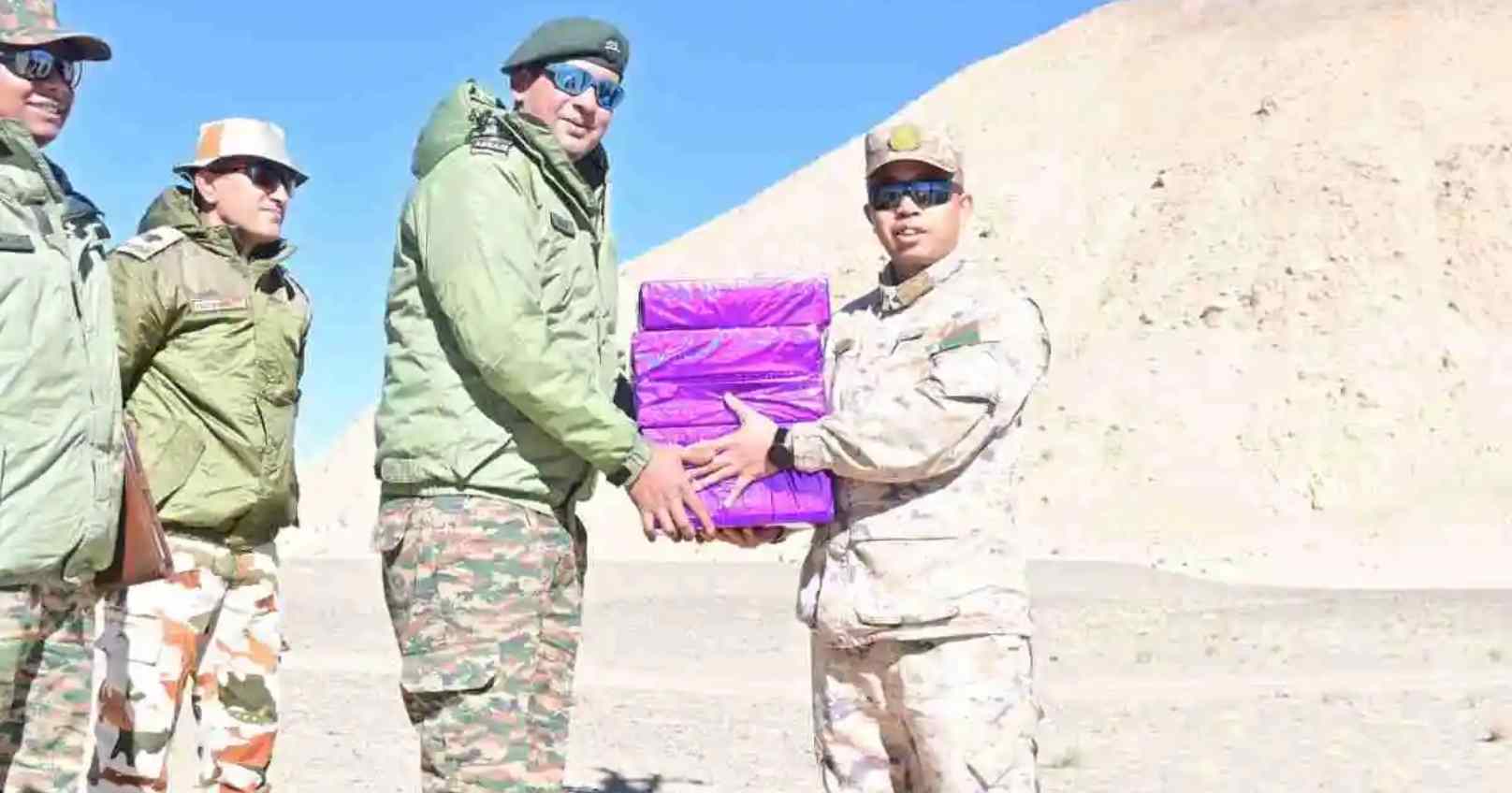Indian and Chinese troops exchanged Diwali sweets at five locations along the Line of Actual Control (LAC), marking a positive gesture following recent military disengagement in Ladakh's Depsang and Demchok areas under a new patrolling agreement.
According to official reports, sweets were shared at locations such as Chushul Maldo and Daulat Beg Oldie in Ladakh, Banchha near Kibitu, and Bumla in Arunachal Pradesh, as well as Nathula in Sikkim. This exchange comes on the heels of both sides pulling back troops and dismantling temporary camps in the Depsang plains and Demchok, restoring military positions to the pre-April 2020 status.
The latest patrolling agreement is aimed at reducing nearly four years of tension along the LAC, which escalated in 2020 following violent confrontations at Pangong Lake and the Galwan Valley, where 20 Indian soldiers lost their lives.
The Indian Army confirmed that a verification process is currently underway to confirm China's troop withdrawal. Ground-level commanders will continue to notify each other before patrols to prevent any miscommunication, though both nations retain surveillance capabilities in Depsang and Demchok.
Satellite images obtained last week have depicted the initial phases of disengagement, with visuals from the Depsang plains’ ‘Y’ Junction showing movement of military vehicles and dismantling of camps by both sides. Images from Demchok have also confirmed the removal of Chinese temporary structures as of October 25.
Indian Army Chief General Upendra Dwivedi commented on the process, expressing hope to “restore trust” between the forces through mutual assurance and adherence to buffer zones. Although full de-escalation remains a goal, External Affairs Minister S. Jaishankar noted that this would only proceed when India is certain of China’s compliance with the disengagement terms.
Additional concerns persist in regions like Gogra-Hot Springs, and intelligence suggests China still holds significant territory in the northern Depsang area. This region is vital for India as it secures access to the Daulat Beg Oldie airstrip and prevents threats to crucial supply centers.
The agreement on patrol protocols was announced shortly before Prime Minister Narendra Modi’s scheduled visit to Russia for the BRICS summit, where he is expected to meet with Chinese President Xi Jinping. Modi emphasized the importance of "peace and stability along our border" in a bilateral conversation with Xi, stressing the necessity of “mutual trust and respect” to ensure long-term stability along the LAC.







